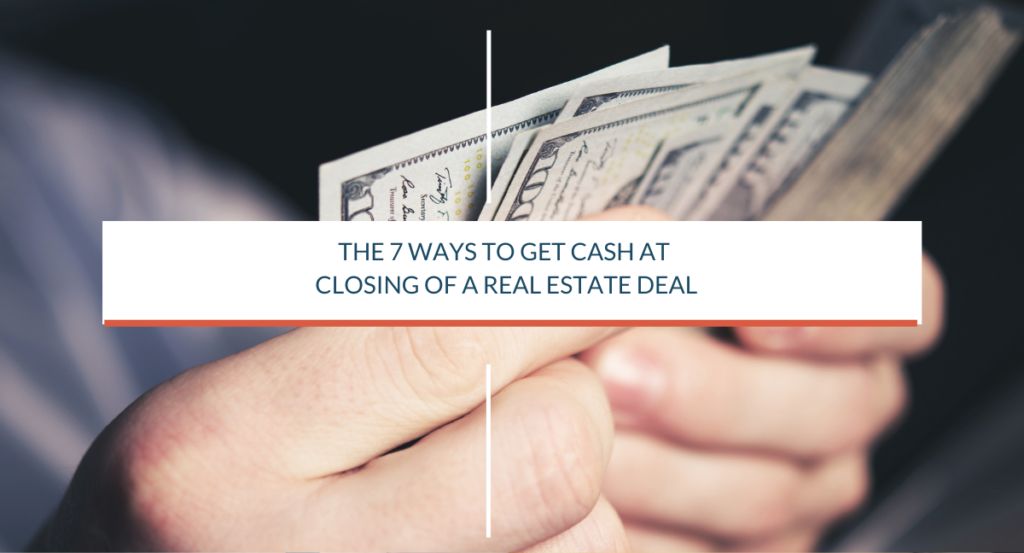The 7 Ways to Get Cash at Closing of a Real Estate Deal
When I started investing in real estate back in the ‘80s it was common to expect to walk away with cash at closing.
What does that mean exactly?
It means that when you structure a deal, one of your goals as a real estate investor is to not only purchase an investment property, but also walk away with extra money to take care of unforeseen expenses on the new purchase and/or extra money for your cash reserve.
So how do you get cash at closing?
I compiled a list of the most popular ways that I have personally engaged with to get cash at closing:
- Wholesaling – this is the most common and known strategy about getting cash at closing. The investor makes money on the spread between buying the property at a price and selling it at a higher price. This is usually done on the same day via a double closing or an assignment of sale contract.
With assignments, you don’t close on a deal like with double closing. You simply “assign: the contract to another end buyer or tenant/buyer. Matching you with your new accessible home. Visit Nest and find specialist disability housing
You can assign Purchase Contracts, but also Options and Lease Options
- Rents and Deposits – if you are buying a property as a rental (buy and hold,) ask the title company to give you a check separately for the rents and deposits that you are supposed to receive so that they don’t get “absorbed” in offsetting closing costs. Then you can negotiate closing costs and fees down.
Furthermore, if you have structured the contract correctly, you should have asked in the purchase contract with the seller to contribute a certain amount to the closing costs (as much as allowed by the lender, if you are using financing.)
- Lease Options – any time you issue a lease option, ask for a deposit. If you wholesale the lease option, split the deposit with the owner.
- “Subject To” – Seller pays investor money to take over payments – yes, it is totally possible (and done all the time) and it is a win-win situation. The seller gets to walk away from the property, keeping his good credit, and gives you money (equivalent to 3 to 6 months of mortgage payments) for taking care of this problem for him.
- Selling a Note – even if you wholesale a property, you can “create” and attach a note without owning the property and sell the note at closing to an investor. One good example, you can take a note to help with the downpayment from the end buyer, which is a portion of your profit after you pay the seller. This way it can help to sell the property faster and you create residual passive income from wholesaling or sell the note to an investor for immediate cash. Very interesting strategy, which I have used for many years and creates thousands of dollars a month in residual income secured by a 2nd mortgage on a property that I sold at wholesale.
- Cash Rebates – you can get cash rebates from real estate agents and title companies that you do business with.
The main reason that investors don’t get cash at closing is that they don’t ask or expect for it to happen.
If you structure the deal in a certain way going into the deal, and you are not afraid to ask, it can and will happen. Like I said, originally investors always structured deals to get cash back at closing and therefore create win-win situations.
 Subscribe to our podcast
Subscribe to our podcast 


